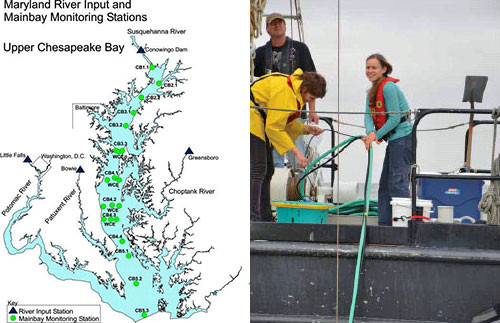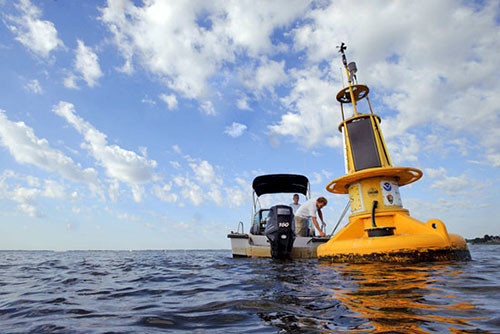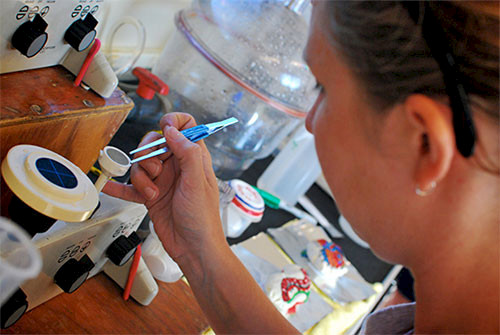Do not go gently into that black abyss of Chesapeake Bay monitoring cuts
Bill Dennison · | Applying Science |At the June Science and Technical Advisory Committee (STAC) meeting and at the Science and Technical Analysis and Reporting (STAR) meeting, we were presented with the scenarios of a $1.1-1.2 million dollar cut to the Chesapeake Bay monitoring program. This would be a nearly 25% reduction of the Environmental Protection Agency (EPA) funding for the tidal and non-tidal monitoring. This monitoring program, which has been occurring continuously since ca. 1986, provides the scientific underpinning of the restoration of Chesapeake Bay.

Needless to say, these proposed cuts have raised a considerable amount of concern within the scientific community. The various budget constraints that the EPA-led Chesapeake Bay Program is facing will undoubtedly mean some trimming and adjustments of the monitoring program. However, the magnitude of cuts currently proposed is worthy of some degree of outrage, bringing to mind the Dylan Thomas poem "Do not go gently into that good night". This prompted me to adapt his poem to the following version:

Do not go gentle into that black abyss
Bill Dennison
Do not go gentle into that black abyss
Scientists should burn and rave at the budget cuts
Rage, rage against the data that they will miss
Though wise men everywhere know monitoring is right
Because it keeps them from thinking in ruts
Do not go gentle into that black night
Good men, the data trends right, noting how bright
Their insights gleaned for Chesapeake Bay
Rage, rage against the dying of the light.
Watermen who caught oysters and crabs in the light
And learn, too late, they grieved it on its way,
Do not go gentle into that good night.
Chesapeake Bay, once near death, needs people with blinding sight
Blind eyes should blaze like meteors on their way
Rage, rage against the dying of the light.
And you, my EPA, there on the sad height,
Curse, bless, me now with your fierce support, I pray.
Do not go gentle into that good night.
Rage, rage against the dying of the light.

About the author
Bill Dennison

Dr. Bill Dennison is a Professor of Marine Science and Vice President for Science Application at the University of Maryland Center for Environmental Science.